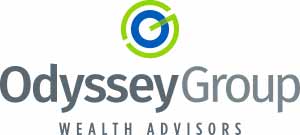
In 2021, Americans donated $484.85 billion, with 67% of that coming from individuals. If you’re considering charitable giving, an intentional, tax-efficient strategy can enhance the power of your donations and build a meaningful legacy for generations to come.
Benefits of Charitable Giving
From a financial standpoint, charitable giving can affect three kinds of federal taxes. If properly prepared, donors can reduce their income taxes, capital gains taxes, and/or estate taxes.
Gifting is also beneficial for your community. The National Council of Nonprofits, which identified 1.3 million charitable American nonprofits in 2021, notes that nearly everyone benefits from charitable contributions in one way or another. Nonprofits are known to foster civic engagement and leadership, drive economic growth, and strengthen the fabric of our communities.
According to the World Happiness Report, which collects data on happiness and giving from around the world, giving to others represents one of the six strongest indicators of life satisfaction. Research even suggests that charitable giving can be good for your health by lowering blood pressure and boosting overall happiness.
Identifying Charitable Gifting Opportunities
Getting started with a charitable giving plan that maximizes your financial impact and reduces your taxes requires a bit of knowledge as gifting can come in a variety of forms. Executives and high-income earners typically accumulate a number of investment accounts as their careers flourish, whether through IRAs, 401(k)s, stock options, and other appreciated accounts. All of these can make it confusing to set up and work towards a tax-efficient gifting strategy on your own. Working with an advisor can help you assess your financial opportunities and determine the best path forward.
Thinking beyond cash, some of these options may include donating appreciated non-cash assets (publicly traded securities, real estate, or private business interests held for greater than one year), contributing to a donor-advised-fund (allowing an immediate tax deduction while the funds grow tax-free for allocation at a later date), financial gifting (can reduce estate taxes), or educational gifting (contributions made to a 529 plan). Another way to reduce your federal taxes involves bunching deductions from multiple years.
High-income earners can defer or reduce their tax burden in a few ways. While donations made to 501(c)(3) organizations qualify for an itemized dedication on your federal income taxes, donors can actually “bunch” donations into one single tax year, reducing their tax liability for a particularly high-income year, and allowing donations to be allocated to charities over subsequent years. This can be done through a donor-advised fund, of which there are many available today. Investors can also offset capital gains taxes (from rebalancing a portfolio, rolling a traditional IRA over to a ROTH IRA, or other complex scenarios) by making the right contributions at the right time.
Some of these options make more sense than others depending upon your overall income in any given year, your proximity to retirement, whether you have children or beneficiaries, and the importance you place on charitable giving within your overall financial plan.
How to Create a Charitable Giving Strategy
There is no one-size-fits-all solution for charitable giving. What works for someone else may not make sense for you. To realize all the benefits of charitable giving – supporting your personal beliefs, improving health and happiness, unlocking tax benefits, and boosting community impact – working with an expert can ensure your gifts work for you.
Our team of advisors can help you create an intentional and tax-efficient strategy to maximize your donation’s impact. Starting now ensures you make the right moves throughout the year, and when completing your tax return. Additionally, having a plan and sticking to it will allow you to make smarter, informed decisions about where and how you contribute to the organizations that matter most to you and your family. Get in touch today.



